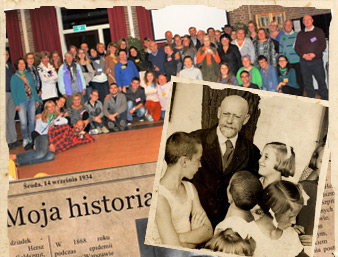
Навстречу 25-летию корчаковского лагеря «Наш Дом» в России
Когда мы говорим о лагере, мы даем ему три характеристики:
лагерь «Наш Дом» корчаковский. В основе его деятельности разработанные Корчаком принципы признания самоценности детства и прав ребенка, в том числе права на свободу в воспитательном пространстве, принцип диалога между взрослыми и детьми как доминанте их взаимоотношений, принцип прощения как ведущей идеи успешной педагогической деятельности...
лагерь «Наш Дом» международный. За прошедшие годы здесь было подготовлено более 300 вожатых нового типа, вожатых-корчаковцев из 9 стран мира, волонтеров, которые участвуют в корчаковском молодежном движении в своих странах: в России, Голландии, Германии, Швейцарии, США, Бразилии, Италии, Испании, на Украине.
лагерь «Наш Дом» интеграционный. За без малого четверть века под его крышей вместе провели летние и зимние каникулы более двух тысяч детей: «домашние» дети из благополучных семей, дети-сироты, инвалиды, дети-изгои, дети с девиантным поведением, дети разного возраста, из разных городов России и из разных стран...
Anticipating the 25th anniversary of Nash Dom Korczak’s Camp in Russia. The 2016 camp results in Tambov Region: new challenges, new problems, new joys, and new hopes.
This year was the 24th Korczak’s camp. The analysis of the camp’s history (the camp is loved so much by its campers and counselors) brought us to a number of conclusions. First, the camp mission has become very clear through all these years. It is Korczak’s understanding of every child’s value, rights of all children, psychological and pedagogical principles of humanism in the camp’s educational environment. The camp’s concept has also been preserved: we keep our traditions, develop the system of celebrations, and make a wide use of Korczak’s forms and methods of pedagogical work with children.
24 years have passed… We are looking back and asking ourselves: what are we to expect in the future? Of course, we should find new forms of work because life changes rapidly, and modern children live in a more virtual space. We are increasingly facing the situation when our children are unable to build relationships in real life: they are unable to be friends, play, or fantasize. Informational space, which is engulfing us, is packed with ready-to-use prescriptions. Children are not given an opportunity to invent things – they just copy and imitate.




